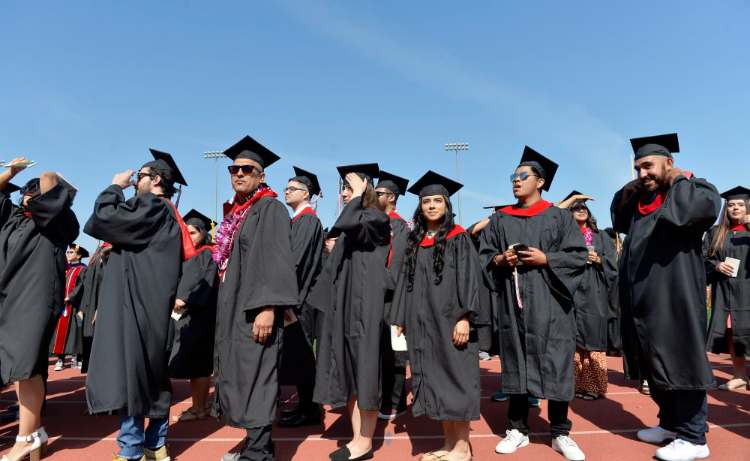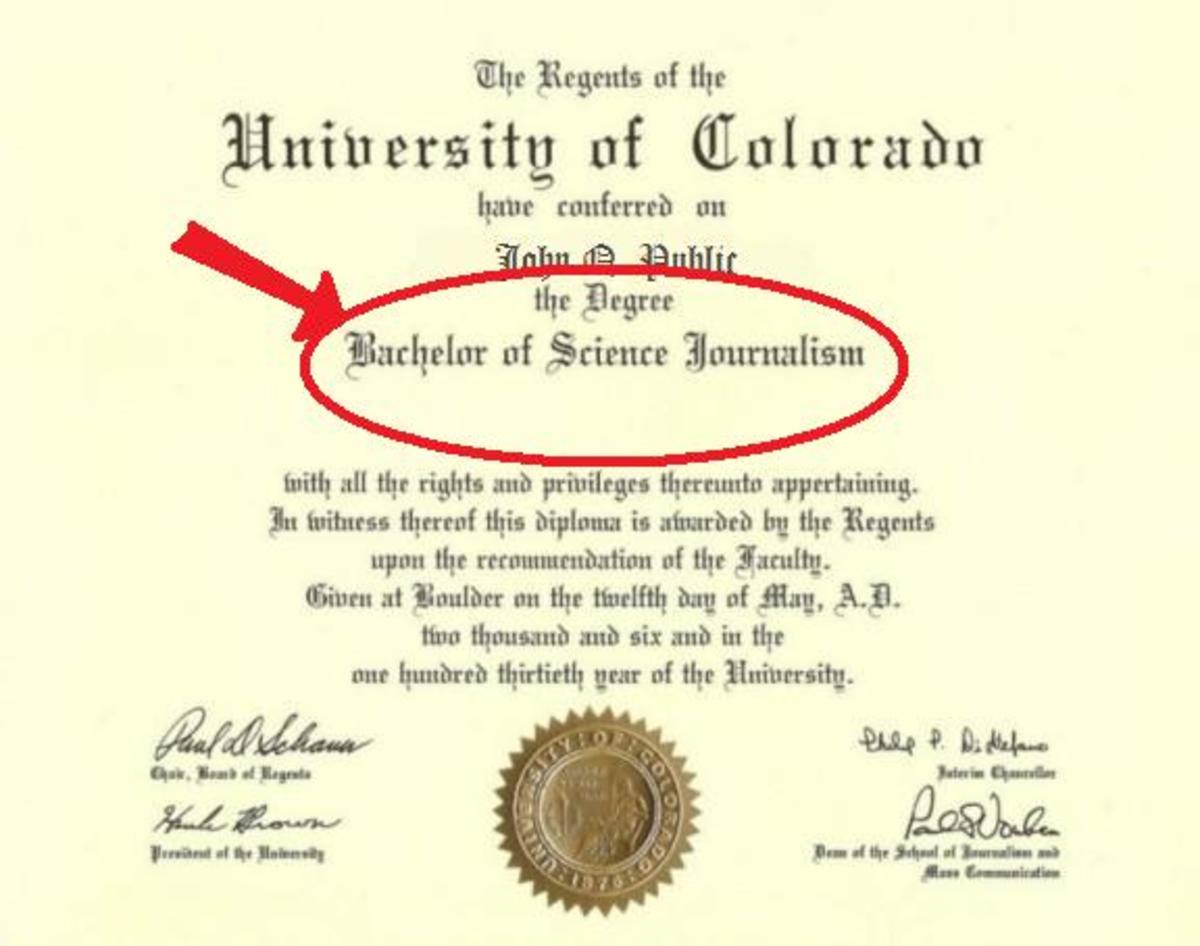A bachelor’s degree is a foundational stepping stone for many individuals, opening doors to diverse career paths and personal growth. This academic achievement signifies a commitment to knowledge and skill development, equipping graduates with the tools needed to navigate the complexities of the modern world.
From its historical roots to its evolving landscape, the bachelor’s degree has played a pivotal role in shaping societies and empowering individuals. It has evolved from a traditional path toward specialized professions to encompass a wide spectrum of fields, reflecting the dynamic nature of knowledge and the ever-changing demands of the workforce.
Definition and History of Bachelor’s Degrees

The bachelor’s degree is a fundamental academic achievement in many countries, representing a significant milestone in higher education. It has evolved over centuries, adapting to societal needs and advancements in knowledge. This evolution has shaped the modern understanding of a bachelor’s degree and its role in preparing individuals for diverse careers and intellectual pursuits.
Evolution of Bachelor’s Degrees
The origins of the bachelor’s degree can be traced back to medieval Europe. During the 12th and 13th centuries, universities emerged as centers of learning, offering programs of study in theology, law, and medicine. The “bachelor” was initially a lower level of scholar, signifying someone who was still in training under a master. Graduates of these early programs received the title of “Master of Arts,” representing the highest level of academic achievement at the time.
- The University of Bologna, founded in 1088, is credited with being the first university to offer formal degrees, including the bachelor’s degree.
- The University of Paris, established in the 12th century, played a significant role in the development of the bachelor’s degree as a structured program of study.
Over time, the bachelor’s degree evolved into a more distinct and recognized qualification. The Renaissance and Enlightenment periods saw a shift towards a broader curriculum, encompassing subjects beyond theology and law. Universities began to offer degrees in areas like philosophy, mathematics, and the sciences.
Traditional Structure and Purpose
Traditionally, a bachelor’s degree program is structured around a core curriculum that provides a broad foundation in liberal arts and sciences. This foundation is complemented by specialized courses in a chosen field of study, known as a major. The purpose of a bachelor’s degree is to:
- Develop critical thinking and analytical skills: Students learn to analyze information, solve problems, and think independently.
- Provide a broad understanding of knowledge: The core curriculum exposes students to diverse disciplines, fostering a well-rounded perspective.
- Prepare individuals for professional careers: Specialized courses in a major provide students with the knowledge and skills required for entry-level positions in their chosen field.
- Enhance personal growth and intellectual development: The pursuit of a bachelor’s degree encourages lifelong learning, critical thinking, and intellectual curiosity.
Early Bachelor’s Degree Programs
Early bachelor’s degree programs often reflected the dominant intellectual and societal trends of the time. For example:
- The Bachelor of Arts (BA) degree emerged in the 13th century, focusing on the liberal arts, including grammar, rhetoric, logic, arithmetic, geometry, music, and astronomy. It served as a foundation for further studies in theology, law, and medicine.
- The Bachelor of Science (BS) degree emerged in the 19th century, emphasizing scientific inquiry and practical applications. It was designed to prepare students for careers in fields like engineering, medicine, and agriculture.
Types of Bachelor’s Degrees

A bachelor’s degree is a four-year undergraduate degree that provides students with a comprehensive understanding of a specific field of study. There are numerous types of bachelor’s degrees, each with its own unique focus and career paths. Understanding the different types of degrees and their associated fields of study can help individuals make informed decisions about their educational and professional goals.
Bachelor of Arts (BA) vs. Bachelor of Science (BS)
The Bachelor of Arts (BA) and Bachelor of Science (BS) are the two most common types of bachelor’s degrees. While both degrees require four years of study, they differ in their focus and the skills they emphasize.
- A Bachelor of Arts (BA) typically focuses on the humanities and social sciences. This degree emphasizes critical thinking, communication, and analytical skills. Common fields of study for a BA include English, history, philosophy, psychology, sociology, and political science.
- A Bachelor of Science (BS), on the other hand, focuses on science, technology, engineering, and mathematics (STEM) fields. This degree emphasizes scientific inquiry, problem-solving, and technical skills. Common fields of study for a BS include biology, chemistry, physics, computer science, engineering, and mathematics.
Common Bachelor’s Degree Fields of Study
Bachelor’s degrees are offered in a wide range of fields, catering to diverse interests and career aspirations. Here are some common fields of study for bachelor’s degrees:
- Business: This field prepares students for careers in management, finance, marketing, accounting, and entrepreneurship. Common degree programs include Bachelor of Business Administration (BBA), Bachelor of Science in Business Administration (BSBA), and Bachelor of Commerce (BCom).
- Education: This field prepares students for careers in teaching, curriculum development, and educational administration. Common degree programs include Bachelor of Arts in Education (BAEd), Bachelor of Science in Education (BSEd), and Bachelor of Education (BEd).
- Engineering: This field prepares students for careers in design, development, and construction of various systems and technologies. Common degree programs include Bachelor of Science in Engineering (BSE), Bachelor of Engineering (BE), and Bachelor of Technology (BTech).
- Health Sciences: This field prepares students for careers in healthcare, including nursing, medicine, pharmacy, and public health. Common degree programs include Bachelor of Science in Nursing (BSN), Bachelor of Science in Health Sciences (BSHS), and Bachelor of Arts in Health Sciences (BAHS).
- Humanities: This field focuses on the study of human culture, history, and expression. Common degree programs include Bachelor of Arts in English (BA), Bachelor of Arts in History (BA), Bachelor of Arts in Philosophy (BA), and Bachelor of Arts in Art History (BA).
- Law: This field prepares students for careers in law, including legal practice, government, and academia. Common degree programs include Bachelor of Arts in Law (BAL), Bachelor of Science in Law (BSL), and Bachelor of Laws (LLB).
- Social Sciences: This field focuses on the study of human behavior and society. Common degree programs include Bachelor of Arts in Sociology (BA), Bachelor of Arts in Psychology (BA), Bachelor of Arts in Political Science (BA), and Bachelor of Arts in Economics (BA).
- Technology: This field prepares students for careers in technology, including software development, cybersecurity, and data science. Common degree programs include Bachelor of Science in Computer Science (BSCS), Bachelor of Science in Information Technology (BSIT), and Bachelor of Science in Data Science (BSDS).
Specific Skills and Knowledge Acquired in Various Degree Programs, Bachelor’s degree
The skills and knowledge acquired in a bachelor’s degree program vary depending on the specific field of study. However, most programs emphasize the following:
- Critical thinking and problem-solving skills: Students learn to analyze information, identify problems, and develop creative solutions.
- Communication skills: Students develop strong written and oral communication skills, including the ability to present information effectively and persuasively.
- Research skills: Students learn to conduct research, analyze data, and draw conclusions.
- Teamwork skills: Students learn to work effectively in teams, collaborating with others to achieve common goals.
- Technological skills: Students develop proficiency in using various technologies, including software, hardware, and online platforms.
Additional Considerations for Choosing a Bachelor’s Degree
When choosing a bachelor’s degree program, it’s important to consider your interests, career aspirations, and personal goals. You should also research different programs, compare their curriculum, and consider the reputation of the institution offering the program.
Benefits of Obtaining a Bachelor’s Degree
Earning a bachelor’s degree is a significant investment in your future, offering a multitude of benefits that extend far beyond the classroom. These advantages encompass career advancement, personal growth, and increased earning potential.
Career Advantages
A bachelor’s degree opens doors to a wider range of career opportunities. Employers often prioritize candidates with higher education qualifications, recognizing the skills and knowledge acquired through a degree program.
- Enhanced Job Security: Individuals with a bachelor’s degree are generally more resilient in the face of economic downturns, as they possess a broader skillset and are better equipped to adapt to changing job markets.
- Increased Employability: A bachelor’s degree equips graduates with valuable skills such as critical thinking, problem-solving, and communication, making them more desirable candidates in the competitive job market.
- Career Advancement Opportunities: Many professions require a bachelor’s degree as a minimum qualification for entry-level positions. Furthermore, a degree often serves as a stepping stone to higher-level roles and leadership positions within organizations.
Salary Increase
Statistics consistently demonstrate that individuals with a bachelor’s degree earn significantly more than those with only a high school diploma. This salary gap widens over time, with bachelor’s degree holders experiencing greater earning potential throughout their careers.
- Higher Starting Salaries: Graduates with a bachelor’s degree typically command higher starting salaries than those with only a high school diploma. This financial advantage provides a solid foundation for building financial security.
- Increased Earning Potential Over Time: The earnings gap between bachelor’s degree holders and those with less education tends to grow over time. This is because individuals with a degree often progress to higher-paying positions and leadership roles.
- Higher Lifetime Earnings: Over the course of their careers, individuals with a bachelor’s degree earn significantly more than those without one. This translates into a higher lifetime income, contributing to a more comfortable retirement.
Personal Growth and Development
Beyond career benefits, a bachelor’s degree fosters personal growth and development, equipping individuals with valuable skills and knowledge that enrich their lives.
- Critical Thinking and Problem-Solving: Higher education cultivates critical thinking skills, enabling individuals to analyze information, identify problems, and develop effective solutions.
- Communication Skills: Bachelor’s degree programs often emphasize communication skills, both written and oral. This proficiency is essential for success in personal and professional settings.
- Self-Discipline and Time Management: The demands of a bachelor’s degree program foster self-discipline, time management skills, and the ability to meet deadlines effectively.
The Application and Admission Process
The application and admission process for a bachelor’s degree program is a crucial step towards achieving your higher education goals. It involves submitting your academic credentials, personal statements, and other supporting documents to the university or college of your choice. This process ensures that you meet the institution’s academic standards and are a suitable candidate for their program.
Common Admission Requirements
Universities and colleges typically have a set of common admission requirements that applicants need to fulfill. These requirements aim to assess your academic preparedness and suitability for the program.
- High School Diploma or Equivalent: This is a fundamental requirement for most bachelor’s degree programs. It demonstrates that you have completed the necessary secondary education and possess a basic foundation of knowledge.
- Standardized Test Scores: Some universities and colleges require applicants to take standardized tests, such as the SAT (Scholastic Assessment Test) or ACT (American College Testing). These tests evaluate your academic abilities in reading, writing, and mathematics.
- Grade Point Average (GPA): Your GPA, calculated based on your high school or previous college transcripts, reflects your academic performance. Universities and colleges often have minimum GPA requirements for admission.
- Letters of Recommendation: These letters are written by individuals who know you well, such as teachers, counselors, or employers. They provide insights into your character, work ethic, and academic potential.
- Personal Statement: This essay allows you to express your academic and personal goals, explain your interest in the program, and highlight your unique qualities.
- Application Fee: Most universities and colleges charge an application fee to cover administrative costs.
Crafting a Compelling Application
A strong application demonstrates your academic abilities, personal qualities, and commitment to your chosen field of study. Here are some tips for crafting a compelling application:
- Research Thoroughly: Explore different universities and colleges that offer your desired program. Consider factors like location, program reputation, faculty expertise, and campus culture.
- Meet the Requirements: Ensure you meet all the admission requirements, including deadlines, application fees, and standardized test scores.
- Highlight Your Strengths: Emphasize your academic achievements, extracurricular activities, leadership experiences, and any relevant skills or knowledge.
- Write a Convincing Personal Statement: Your personal statement should be well-written, engaging, and reflective of your genuine interest in the program.
- Seek Feedback: Ask trusted individuals, such as teachers, counselors, or friends, to review your application materials for clarity, grammar, and overall impact.
The Personal Statement
The personal statement is a crucial part of your application, allowing you to showcase your personality, goals, and passion for your chosen field. It should be a well-written and compelling essay that highlights your unique qualities and why you are a good fit for the program.
- Start Strong: Begin with a captivating hook that grabs the reader’s attention and sets the tone for your essay.
- Focus on Your Story: Share your academic journey, your motivations for pursuing the program, and any experiences that have shaped your interests.
- Demonstrate Your Fit: Explain how your skills, knowledge, and goals align with the program’s curriculum and objectives.
- Showcase Your Passion: Express your enthusiasm for the field and your commitment to learning and contributing to the academic community.
- Proofread Carefully: Ensure your essay is free of grammatical errors, typos, and stylistic inconsistencies.
The Bachelor’s Degree Curriculum

A bachelor’s degree program is designed to provide students with a comprehensive understanding of a specific field of study. The curriculum typically encompasses a variety of courses, including core courses, electives, and potentially a capstone project or internship. These courses are structured to equip students with the knowledge, skills, and abilities required for successful careers in their chosen field.
Typical Structure of a Bachelor’s Degree Program
The structure of a bachelor’s degree program is generally standardized, though specific course requirements may vary depending on the institution and the specific major. Here’s a table illustrating the typical structure:
| Category | Description |
| —————– | —————————————————————————————————————————————————————————————————————————————————————————————————————– |
| Core Courses | These are foundational courses that provide a broad understanding of the chosen field of study. They typically cover essential concepts, theories, and methodologies. Examples include: |
| Electives | These courses allow students to explore specific areas of interest within their major or pursue interdisciplinary studies. They provide an opportunity to specialize or gain expertise in areas that align with their career goals. Examples include: |
| General Education | These courses are designed to broaden students’ perspectives and develop critical thinking, communication, and problem-solving skills. They typically cover subjects like humanities, social sciences, and natural sciences. Examples include: |
| Capstone Project/Internship | This component provides students with an opportunity to apply their knowledge and skills in a real-world setting. It can involve completing a research project, developing a product or service, or gaining practical experience through an internship. |
Workload and Time Commitment of Different Bachelor’s Degree Programs
The workload and time commitment of a bachelor’s degree program can vary significantly depending on the chosen major and the institution. Here’s a table comparing the workload and time commitment of different bachelor’s degree programs:
| Major | Typical Workload (Credit Hours per Semester) | Typical Time Commitment (Hours per Week) |
| ——————- | —————————————- | —————————————- |
| Engineering | 15-18 | 20-25 |
| Business | 12-15 | 15-20 |
| Humanities | 12-15 | 15-20 |
| Social Sciences | 12-15 | 15-20 |
| Sciences | 15-18 | 20-25 |
Common Courses Within Specific Degree Fields
The specific courses offered within a bachelor’s degree program will vary depending on the chosen field of study. Here are some common courses within specific degree fields, highlighting their relevance to the chosen career path:
Business Administration:
* Principles of Management: This course introduces fundamental management concepts, such as planning, organizing, leading, and controlling. It’s relevant to various business roles, from entry-level positions to leadership roles.
* Marketing: This course covers marketing principles, strategies, and techniques used to promote products and services. It’s essential for careers in marketing, advertising, and sales.
* Finance: This course explores financial concepts, such as budgeting, investing, and risk management. It’s relevant to careers in finance, accounting, and investment banking.
Computer Science:
* Introduction to Programming: This course teaches the fundamentals of programming languages and software development. It’s essential for careers in software engineering, web development, and data science.
* Data Structures and Algorithms: This course covers data structures, algorithms, and their applications in computer programming. It’s crucial for developing efficient and scalable software solutions.
* Operating Systems: This course explores the principles and concepts of operating systems, including process management, memory management, and file systems. It’s relevant to careers in system administration, software development, and network engineering.
Education:
* Educational Psychology: This course examines the psychological principles underlying learning and teaching. It’s essential for understanding student development, motivation, and learning styles.
* Curriculum and Instruction: This course explores the principles and practices of curriculum design and instruction. It’s relevant to careers in teaching, curriculum development, and educational leadership.
* Special Education: This course provides an overview of special education, including identification, assessment, and instructional strategies for students with disabilities. It’s essential for educators working with diverse learners.
Engineering:
* Calculus: This course covers the fundamental concepts of calculus, including derivatives, integrals, and differential equations. It’s essential for understanding and applying engineering principles.
* Physics: This course explores the fundamental principles of physics, including mechanics, electricity, and magnetism. It’s crucial for understanding and designing engineering systems.
* Engineering Mechanics: This course examines the principles of statics and dynamics, which are essential for analyzing and designing structures and machines.
Healthcare:
* Human Anatomy and Physiology: This course explores the structure and function of the human body. It’s essential for understanding the human body and its systems, which is crucial for healthcare professionals.
* Medical Terminology: This course introduces medical terminology and its applications in healthcare settings. It’s essential for effective communication and understanding within the healthcare industry.
* Pathophysiology: This course examines the mechanisms of disease and their impact on the human body. It’s essential for understanding disease processes and developing effective treatment strategies.
Ultimate Conclusion
In conclusion, the bachelor’s degree remains a valuable asset in today’s competitive world. It provides a comprehensive framework for acquiring knowledge, honing skills, and building a foundation for personal and professional success. Whether you aspire to a career in science, technology, the arts, or any other field, the pursuit of a bachelor’s degree can unlock a world of possibilities and pave the way for a fulfilling and impactful future.
FAQ Summary
What is the difference between a Bachelor of Arts (BA) and a Bachelor of Science (BS)?
A BA typically focuses on humanities and social sciences, emphasizing critical thinking and communication skills. A BS, on the other hand, is often more science and math-oriented, preparing students for careers in technical fields.
How long does it take to earn a bachelor’s degree?
A traditional bachelor’s degree program typically takes four years of full-time study, although some programs may be shorter or longer depending on the specific field of study and course load.
Is a bachelor’s degree required for all jobs?
While a bachelor’s degree is becoming increasingly common for many professions, it is not required for all jobs. Some careers may only require a high school diploma or vocational training, while others may require advanced degrees such as a master’s or doctorate.


